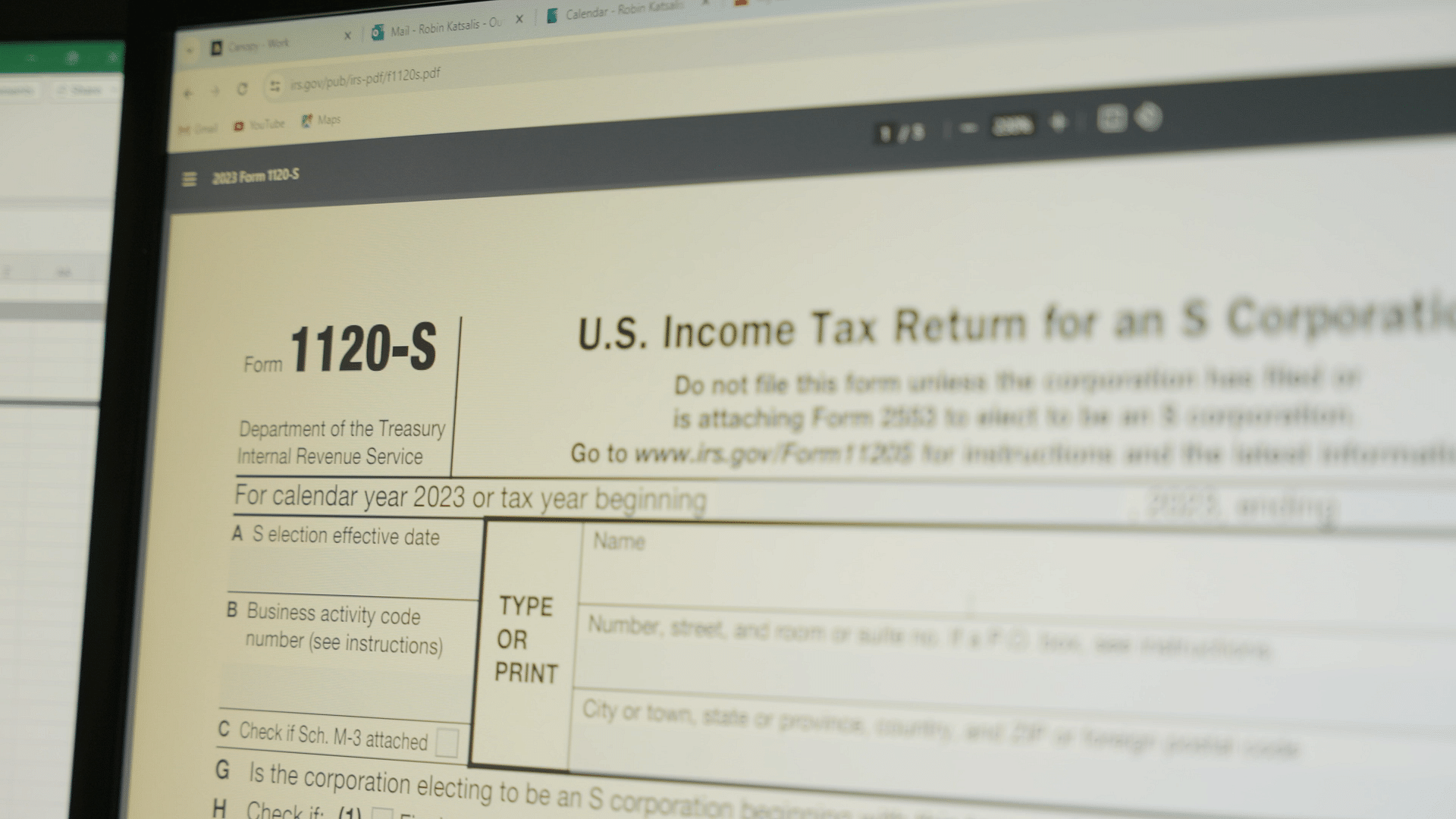
How to Evaluate the Financial Health of a Creative Professional's Business
Dec 22nd, 2023
The financial health of any business is a crucial aspect that determines its success. Creative professionals are no exception to this rule, and it is essential to keep tabs on your business's financial health. Whether you are a photographer, graphic designer, or writer, understanding the financial landscape of your business can help you overcome the challenges that come with running a creative enterprise. Let's take a look at some key steps to evaluating the financial health of your business.
Steps to Evaluate the Financial Health of Your Business:
Defining Your Business Objectives:
One of the critical steps in evaluating the financial health of your business is to define your business objectives. As a creative professional, the best way to decide on your business goals is to start by defining what success looks like to you. Begin by understanding what you want to achieve and the direction you want to take in your creative career. Then, consider factors such as your personal values and passions to ensure that they align with your business goals.
Conducting market research, identifying pain points in your industry, and studying successful businesses in your field can also aid you in creating specific and measurable goals. For instance, if you're a graphic designer, you may want to identify your target audience, determine your unique selling proposition, and set measurable marketing objectives for your business. By using a strategic approach, you can make informed decisions that will help you to achieve long-term growth and success.
Analyzing Revenue and Income Streams:
As a creative professional, it's crucial to analyze your revenue and income streams to understand which areas are generating the most income for you. One of the best ways to do this is by keeping track of your earnings from each project, client, or product. This will help you identify your most profitable ventures, allowing you to focus your efforts and resources on those areas.
Additionally, tracking your expenses is equally essential to ensure you're not overspending on areas that aren't generating income. For example, if you're a graphic designer and notice that your logo design services generate the most income for you, then you can allocate more time to that specific area.
With this information, you can also adjust your pricing strategy, and offer more services or products that have shown to be profitable. In short, analyzing your revenue and income streams as a creative professional can give you valuable insights and help you create a sustainable business model that maximizes your profits.
Managing Expenses Effectively:
Managing expenses is crucial to the financial health of your business. One effective strategy is to create a detailed budget that accounts for all income and expenses, including monthly bills, business expenses, and unexpected costs. Utilizing accounting software or apps can also assist in keeping track of expenses and identifying any areas where spending can be reduced.
For example, freelance designers can benefit from tools like QuickBooks to monitor expenses and issue invoices. Additionally, researching cost-effective alternatives for necessary materials or services may prove advantageous. Creative professionals can explore various collaborative platforms such as Fiverr or Upwork to outsource rather than hire full-time workers to reduce costs.
Learn more: Accounting for advertising agencies, design studios, or independent contractors doesn't have to be difficult!
Analyzing the Financial Statements of Your Business:
Creative professionals are often focused on their craft and may find the financial aspects of their business challenging or overwhelming. However, a basic understanding of financial statements is crucial for the success of any enterprise. One effective way for creatives to interpret financial statements is by focusing on key metrics such as revenue, profit margins, and cash flow.
For example, comparing revenue trends over time can help a creative business owner identify areas of growth and potential risks. Accounting software can also be an effective tool for analyzing financial data, allowing creatives to easily track expenses and revenue, and monitor profit margins and cash flow. Additionally, seeking the advice of a financial professional or mentor can provide valuable insight and guidance on interpreting financial statements and making informed business decisions.
Navigating Business Taxes:
It is important to have a good understanding of your business' tax situation. This means knowing which tax obligations apply to your business, such as income tax, sales tax, and self-employment tax. Understanding your tax situation can help you make informed decisions about business expenses, pricing, and overall financial planning.
Hiring an accounting service or professional business tax preparer can help you navigate the complex and ever-changing tax laws and regulations your business is subject to. They can provide insight into deductions and credits that you may be eligible for, and ensure that you comply with all tax obligations.
For example, if you are a freelance graphic designer, an accounting service can help you claim deductions for business expenses such as software, equipment, and office space. On top of this, hiring an accounting service or professional can save you time and stress, allowing you to focus on what you do best - creating. Don't let tax season stress you out - consider hiring an accounting service or professional tax preparer to help you navigate the complexities of your business' tax situation.
Aim for a net 20-30% profit margin
A healthy profit margin ensures that the business generates enough revenue to cover its expenses and invest in growth opportunities. Secondly, a higher profit margin provides a cushion for unexpected expenses or economic downturns. Furthermore, a solid profit margin attracts investors and lenders, allowing the business to access funding for expansion. Finally, it also enables the business to pay its employees competitively and maintain a positive work environment.
Operate with savings of at least 3 months of expenses
This provides a crucial safety net that can help to protect against unforeseen or unexpected financial setbacks. For instance, it could cover the costs of unexpected repair bills, delayed payments from customers, or the loss of a significant contract. Furthermore, having a healthy level of savings is also crucial for managing and planning cash flow effectively, especially during lean periods. Without adequate savings, small businesses can run the risk of relying too heavily on credit or facing crippling debt.
Be proactive about taxes
It's easy to push tax-related tasks to the bottom of your to-do list, but it's important to be proactive when it comes to taxes. Being on top of tax-related activities can save you from unnecessary stress during tax season and help you avoid costly mistakes or penalties. Secondly, understanding your tax obligations from the beginning can help you plan your finances more efficiently throughout the year, avoiding any financial shocks or surprises in the future. Finally, proactively managing your taxes can help you make better business decisions, such as deciding on pricing strategies, budgets, and investments. So, don't wait - take control of your taxes and give yourself some peace of mind.
Staying Consistent:
Consistency is a crucial aspect of managing the financial health of small businesses, especially for creative professionals. They often work with fluctuating income streams that can be affected by external factors such as seasonality, economic downturns, or shifts in consumer demand. To maintain consistent finances, creatives need to have a steady stream of clients who engage their services regularly. This demands a persistent effort in building long-lasting client relationships.
For example, maintaining a strong social media presence, with regular updates on their portfolio and testimonials from satisfied clients can help you achieve brand consistency and more business. Additionally, developing a pricing structure that reflects true value can help to maintain a reliable income. It's also crucial to keep a tight grip on expense management, with a clear budgeting system that can pinpoint areas where expenses can be streamlined. This will provide a comprehensive picture of your financial condition, helping creatives to make informed decisions that can sustain their businesses over time.
Quick Tips:
Even financially savvy business owners can have a hard time evaluating the health of their businesses when there's a lack of clear, achievable benchmarks. And while all businesses are different, aiming for these three financial benchmarks can help give you an idea of what a healthy enterprise might prioritize:
While it can be overwhelming to keep track of expenses, income, and taxes while trying to focus on growing your business-Appletree Business Services is here to help creative professionals evaluate and manage the financial health of their businesses. Our team of licensed CPAs and business consultants has over 30 years of experience, helping small businesses across the country reach their financial goals.
At Appletree, we understand the unique financial needs of creative professionals and tailor our services to fit your business model. With our assistance, you can rest assured that your finances are in good hands, so you can focus on what you do best-creating. If you're a creative professional looking to take control of your finances and reach your goals, please reach out to our customer service department today to speak with one of our experts!


Let’s Help Eliminate Your Stress
If you choose Appletree Business Services for your bookkeeping, payroll or tax needs, you’ll find that good things begin to happen in your business. Your common financial challenges will become simple with a clear map to create your ideal situation. More than that, we’ll identify your “typical” stresses and help make them go away.